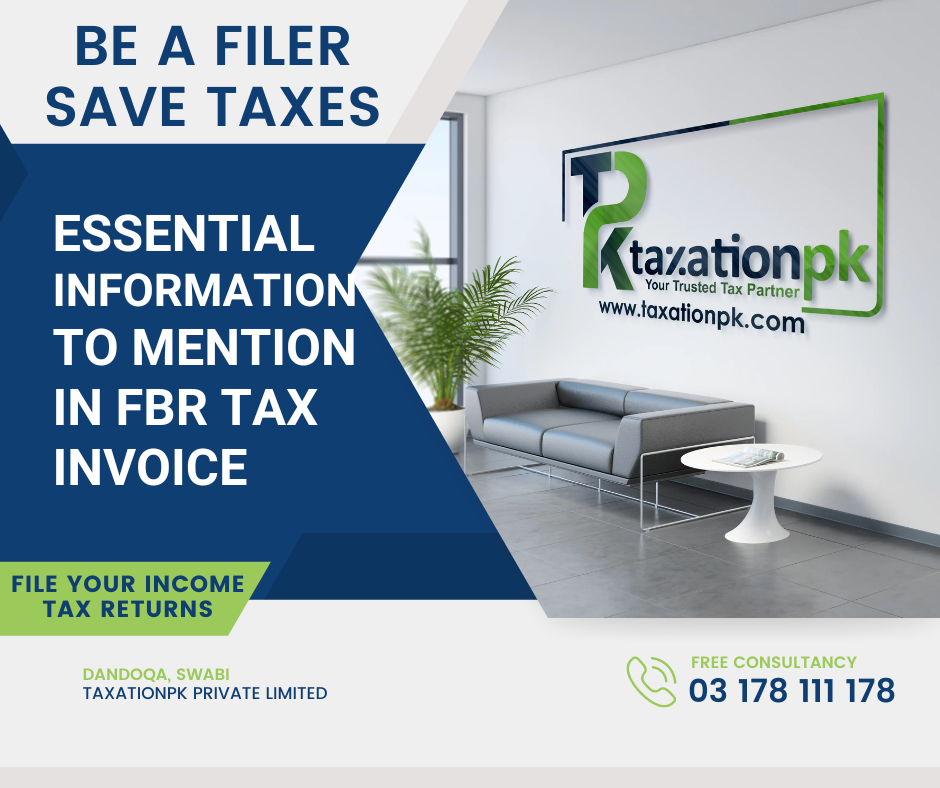Tax invoices play a crucial role in Pakistan’s tax system, ensuring transparency and accountability in transactions involving registered businesses. This article delves into the key aspects of these documents, explaining what they are and why they are essential.
What are Tax Invoices?
A tax invoice is a serially numbered document issued by a registered business at the time of supplying taxable goods. It serves as an official record of the transaction and contains specific information required by the FBR.
Essential Information on a Tax Invoice:
- Provider Details: Name, address, and registration number of the supplying business.
- Recipient Details: Name, address, and registration number of the recipient (if applicable). For supplies from manufacturers or importers to unregistered distributors, the NIC or NTN of the distributor is required (effective from August 1st, 2019).
- Exception: NIC requirement doesn’t apply for payments made through debit/credit card or digital modes.
- Date of Issue: The date the invoice is issued.
- Goods Description: A clear description of the goods supplied, including count, denier, and construction for textile yarn and fabric.
- Quantity of Goods: The number or amount of goods supplied.
- Value and Taxes:
- Value of goods excluding tax (excluding Sales Tax).
- Amount of Sales Tax applied.
- Total value including tax.
Additional Points:
- The FBR may specify modified invoices for different people or groups.
- Only one tax invoice can be issued per taxable supply.
- Only registered businesses or those paying retail tax can issue tax invoices.
- Registered businesses can, under certain conditions, issue electronic invoices to other registered persons and the FBR.
Why are Tax Invoices Important?
For businesses:
- Compliance: Demonstrates adherence to tax regulations, reducing audit risks.
- Claim Support: Serves as evidence for claiming input tax adjustments.
- Trust Building: Reflects transparency and professionalism, fostering positive customer relationships.
For the FBR:
- Efficient Tax Collection: Provides clear records of taxable transactions, facilitating efficient Sales Tax collection.
- Combating Tax Evasion: Discourages businesses from avoiding tax obligations.
- Data Analysis: Offers valuable information for informed policy decisions.
Conclusion:
Understanding and issuing tax invoices correctly is crucial for both businesses and the government in Pakistan. They ensure transparency, accountability, and an efficient tax system. By adhering to the regulations and embracing electronic options where possible, businesses can contribute to a more robust tax system and benefit from its advantages.






